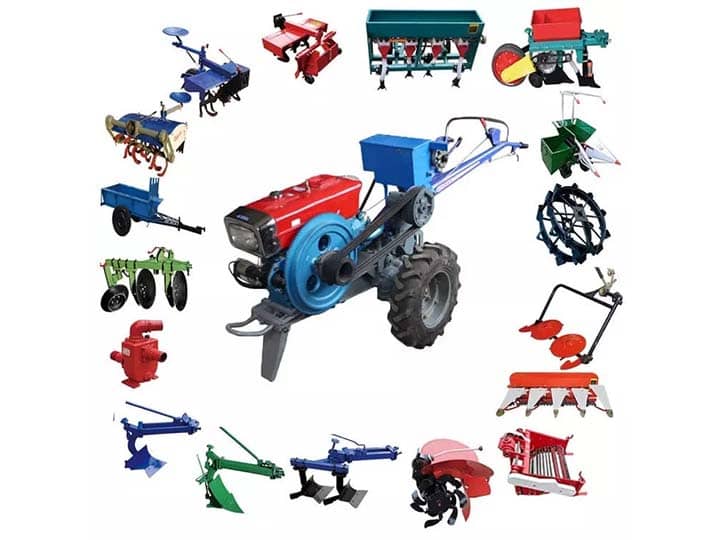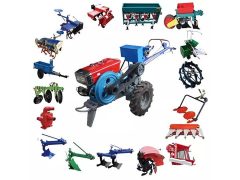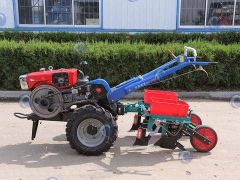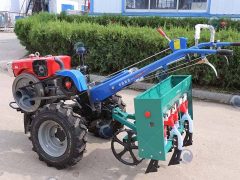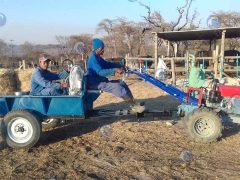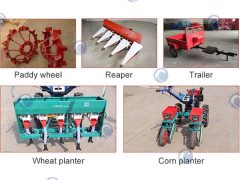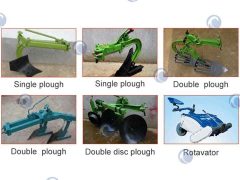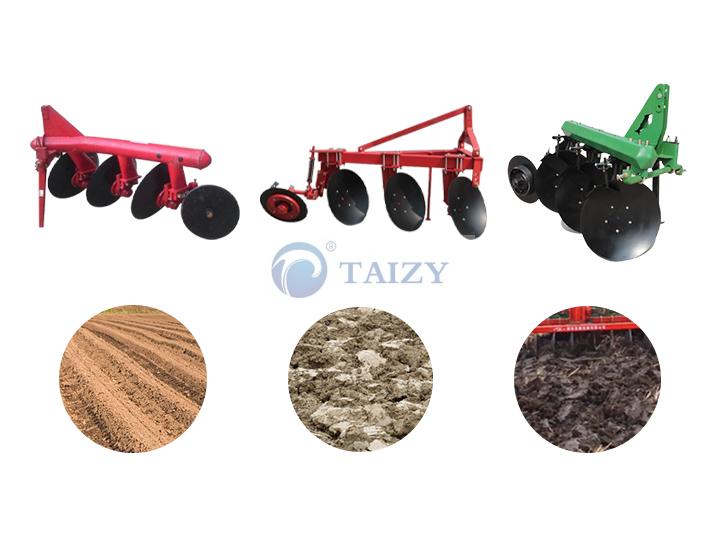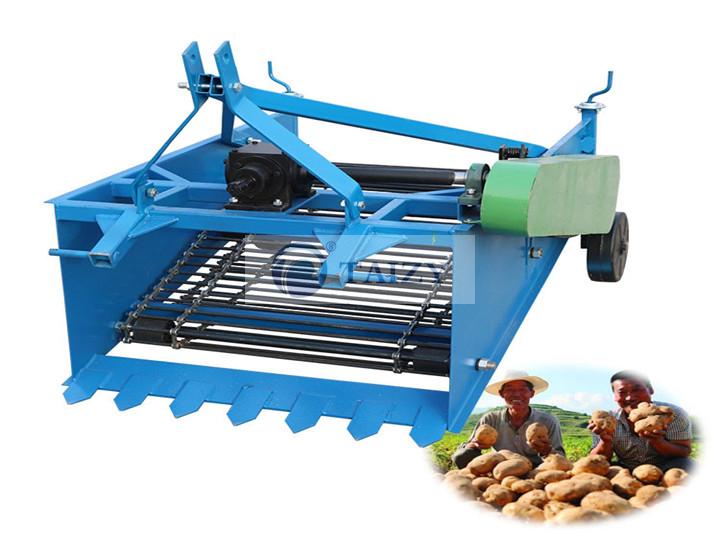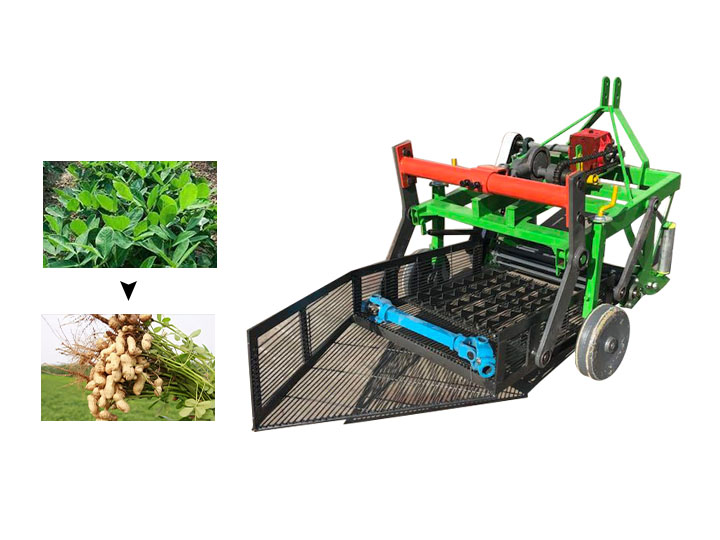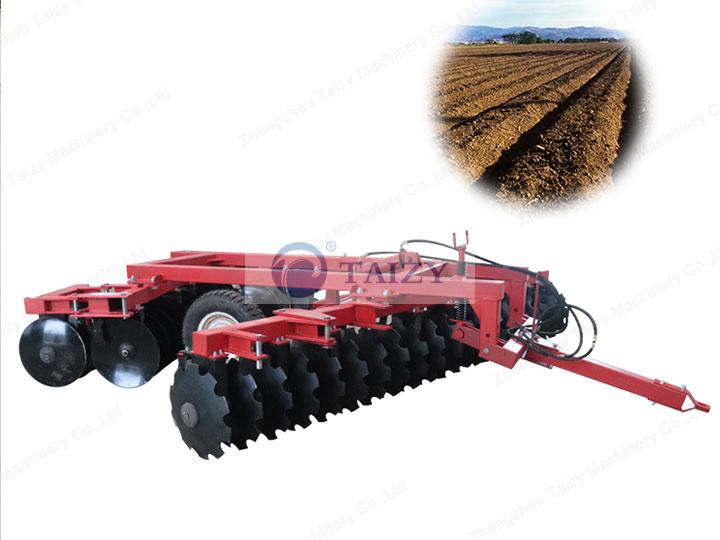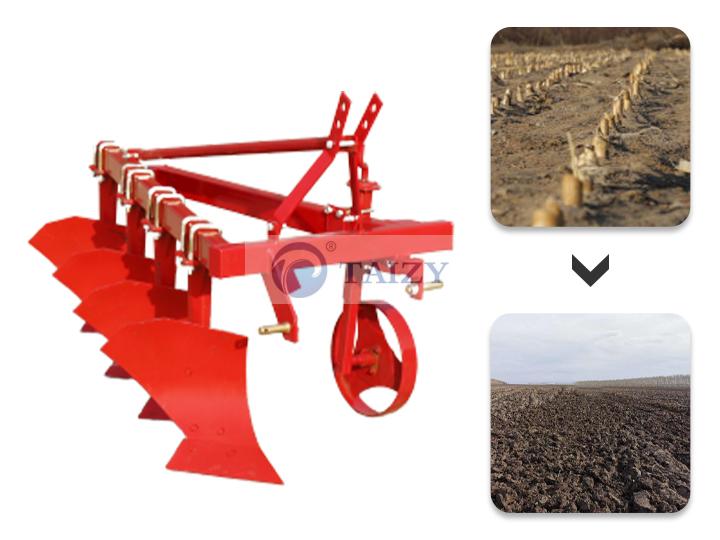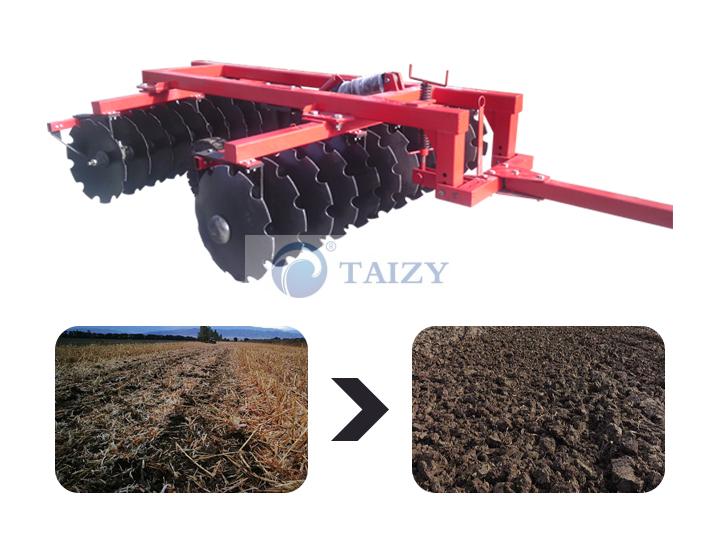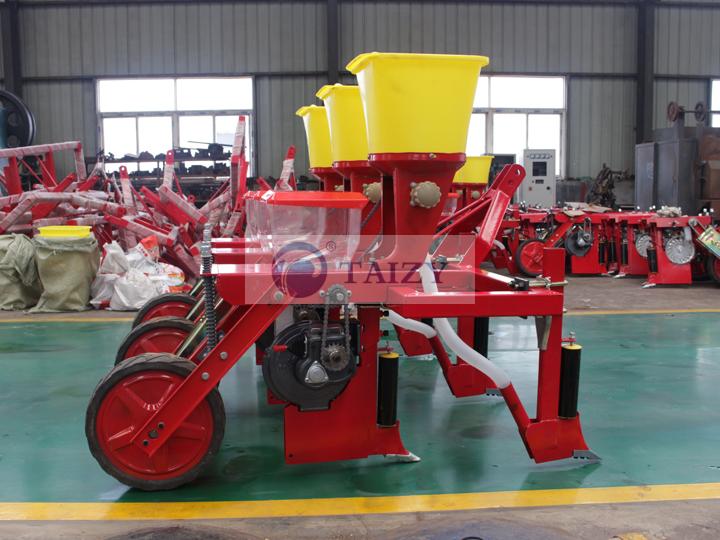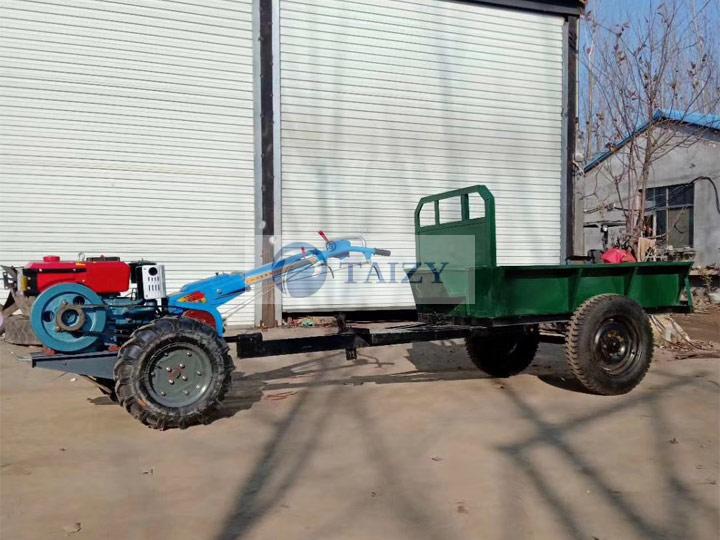Small and Simple Farming Walking Tractor
Small and Simple Farming Walking Tractor
Walk Behind Tractors | Two-wheel Tractor
Features at a Glance
The small farming walking tractor, light and flexible but with surging power, can easily complete a variety of farming operations such as plowing, sowing, harvesting, transportation and so on with only one person at the controls.
Whether it’s a plain or a mountainous area, it can realize the whole process of operation with more than a hundred kinds of accessories such as quick-changeable plows, seeders, harvesters, fertilizer spreaders and so on.
The simple man-machine interaction handle design allows the operator to intuitively grasp the in/out, clutch and speed adjustment. The compact diesel powertrain ensures strong torque while taking into account low fuel consumption and easy maintenance.
Walking tractor with attachments
The farming walking tractor can be paired with a variety of attachments, including a double disc plow, single plough, double plough, mud wheel, rotavator, wheat planter, corn planter, trailer, ridges, and water pumps, among others.
All you need to do is swap out the farm tools to tackle different agricultural tasks!
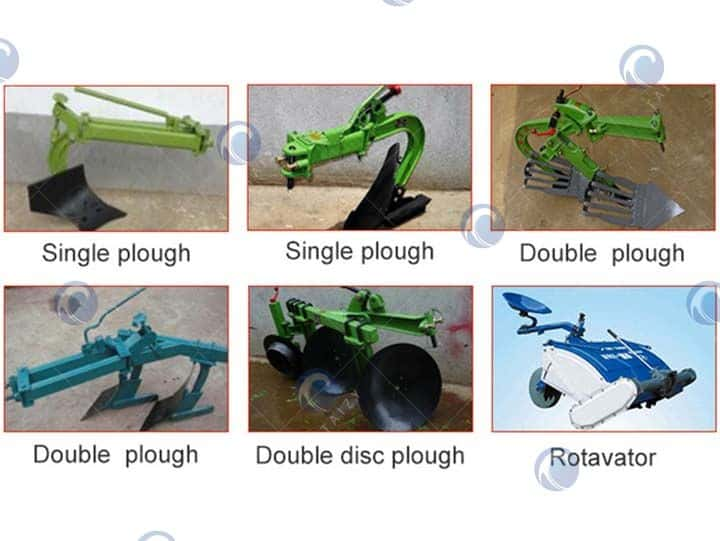
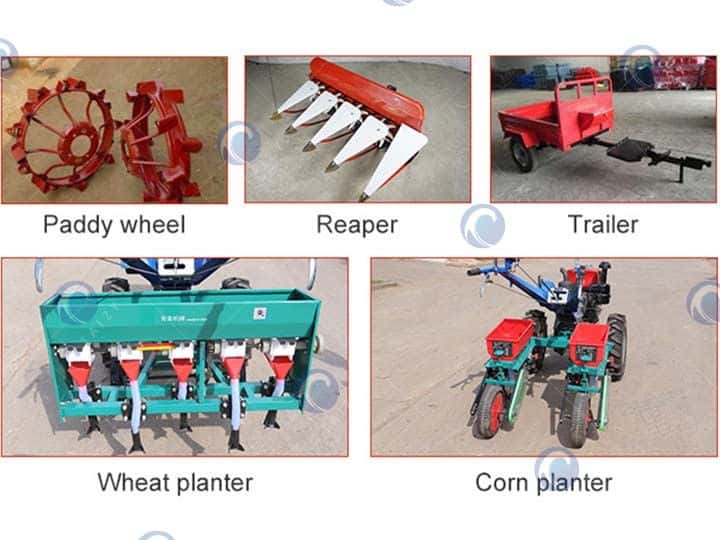
Different uses of walk-behind tractor
Plowing
The farming walking tractor with a plow—also known as a walking tractor plough. This machine is super efficient, user-friendly, and great for loosening up the soil.
Trenching
Looking for a farming solution? Check out the walking tractor with a trenching attachment! This powerful combo can tackle just about any trenching needs you have on your farm.
Ridging
A small farming walking tractor designed for ridging—specifically, a walking tractor ridger.
This type of equipment is perfect for planting crops like sweet potatoes, tomatoes, strawberries, potatoes, peanuts, radishes, and more.
Rotary tillage
Looking for a powerful tool for your farming needs? Check out the diesel engine walking tractor paired with a rotary tiller!
This tiller, designed to work with a 15 Hp walking tractor, lets you dig anywhere from 6 to 10 inches deep. It’s similar to a rototiller, and its main job is to churn the soil, helping to aerate and break it up for better planting.
Walking tractor with corn planter and wheat seeding
If you combine a corn planter or wheat planter with your small walking tractor, you can effectively plant your grain seeds right into the soil where they can thrive.
This approach significantly boosts the survival rate of the seeds and enhances the quality of the seedlings.
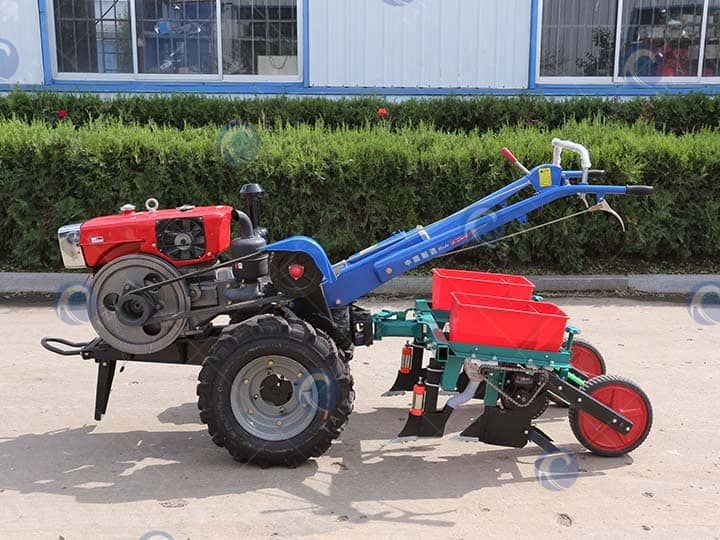
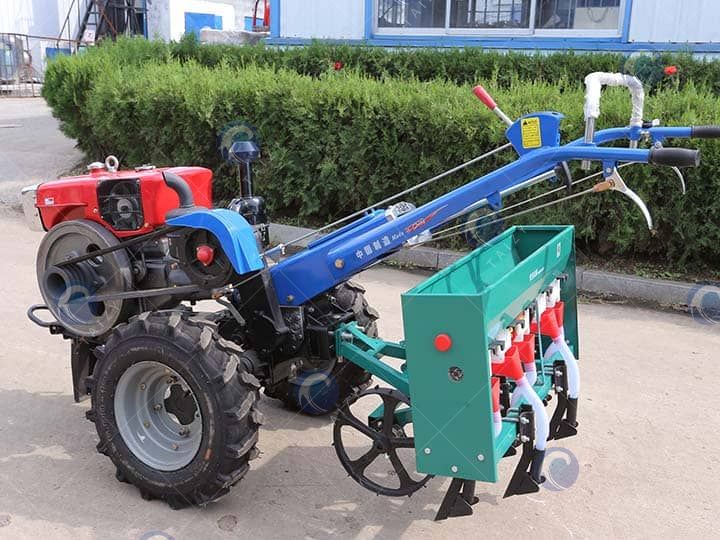
Simplicity walking tractor with trailer
When you pair a trailer with a handheld walking tractor, it opens up a world of all-terrain transportation possibilities.
Plus, it really expands the range of tasks that walking tractors can handle on your diverse farm. For instance, they can efficiently transport crops from fields, balers, orchards, or pastures.
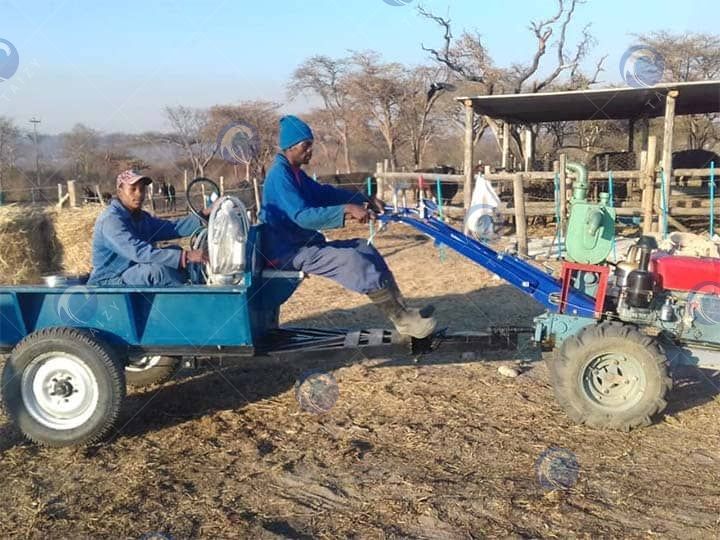
Small walking tractor price
Our farming walking tractors come in various horsepowers, and they can be paired with a range of farm tools to tackle all sorts of farming tasks.
Whether you’re plowing, rotary tilling, ridging, or sowing, our machines have got you covered. If you’re interested in learning more about our walking tractors, feel free to reach out to us!
|
Model |
15HP walking tractor | |
|
Engine parameter |
Engine model |
ZS1100 |
Engine type |
Single, horizontal, water-cooled, four-stroke | |
|
Starting method |
hand start/electric start | |
Combustion system |
direct injection | |
|
Cooling way |
Evaporative/condensing | |
|
Power |
1 hour:12.13kw/16hp | |
|
12 hour: 11.03kw/15hp | ||
|
Dimensions(LxWxH) |
2680×960×1250mm | |
Min. ground distance |
185mm | |
|
Wheelbase |
580-600mm | |
|
Weight |
350kg | |
Tire model |
6.00-12 | |
Tire pressure | Field work |
80~200(0.8~2.0kgf/cm2) |
Transportation work |
140-200(1.4~2.0kgf/cm2 ) | |
Maintenance of the two wheel walking tractor
If a walk-behind tractor sits idle for an extended period, it can run into some issues. To prevent any problems when you decide to use it again, it’s important to take some maintenance steps.
- First, think about where to park it. Ideally, you should store it in a warehouse, but make sure it’s not alongside chemical fertilizers or pesticides to avoid any corrosion on the parts.
- If you have to leave it outside, pick a high, dry, and well-ventilated spot, and cover it with plastic sheeting to protect it from mechanical damage and rust.
- Use wooden blocks or masonry to prop up the tractor and relieve some pressure off the tires. If you can’t provide that support, make sure to inflate the tires by 10% to 20% and check them regularly to keep them properly inflated.
- Make sure to scrub off any dirt and oil from the tractor’s exterior, and give it a thorough inspection. Adjust and tighten all parts and screws to prevent any loosening or falling off.
- When it comes to fluids, after the tractor has been out of service, drain the cooling water, diesel, and engine oil. Then, when you’re ready to use it again, refill it with clean oil and water.
- Pour a suitable amount of dehydrated engine oil into the intake pipe and rotate the crankshaft to ensure the oil coats the piston, piston rod, cylinder liner, and valve.
- For the injector, remove it, clean it, and place it in clean diesel. Loosen the adjusting screw and plug the injector hole with a wooden plug.
- Lastly, fill the axle box with oil. Pour 1kg of dehydrated engine oil into the crankcase, then swing the crankshaft a few times to ensure the lubrication system is filled with the oil.
If interested in our farming walking tractors, please feel free to contact us, we build the most suitable machine for you.

